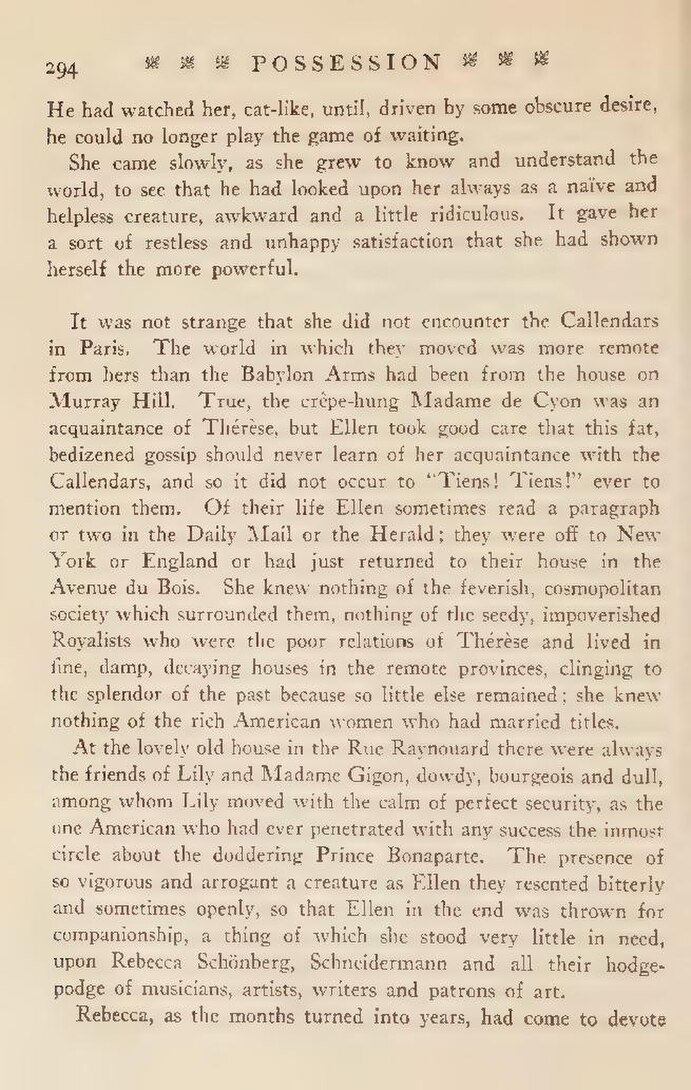He had watched her, cat-like, until, driven by some obscure desire, he could no longer play the game of waiting.
She came slowly, as she grew to know and understand the world, to see that he had looked upon her always as a naïve and helpless creature, awkward and a little ridiculous. It gave her a sort of restless and unhappy satisfaction that she had shown herself the more powerful.
It was not strange that she did not encounter the Callendars in Paris. The world in which they moved was more remote from hers than the Babylon Arms had been from the house on Murray Hill. True, the crêpe-hung Madame de Cyon was an acquaintance of Thérèse, but Ellen took good care that this fat, bedizened gossip should never learn of her acquaintance with the Callendars, and so it did not occur to "Tiens! Tiens!" ever to mention them. Of their life Ellen sometimes read a paragraph or two in the Daily Mail or the Herald; they were off to New York or England or had just returned to their house in the Avenue du Bois. She knew nothing of the feverish, cosmopolitan society which surrounded them, nothing of the seedy, impoverished Royalists who were the poor relations of Thérèse and lived in fine, damp, decaying houses in the remote provinces, clinging to the splendor of the past because so little else remained; she knew nothing of the rich American women who had married titles.
At the lovely old house in the Rue Raynouard there were always the friends of Lily and Madame Gigon, dowdy, bourgeois and dull, among whom Lily moved with the calm of perfect security, as the one American who had ever penetrated with any success the inmost circle about the doddering Prince Bonaparte. The presence of so vigorous and arrogant a creature as Ellen they resented bitterly and sometimes openly, so that Ellen in the end was thrown for companionship, a thing of which she stood very little in need, upon Rebecca Schönberg, Schneidermann and all their hodgepodge of musicians, artists, writers and patrons of art.
Rebecca, as the months turned into years, had come to devote
